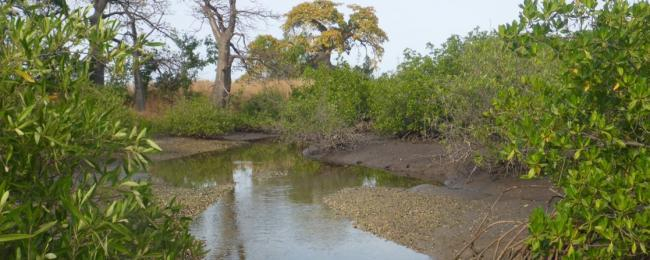Research aims
Mangroves are embraced and influenced by marine and terrestrial adjacent ecosystems. The entire ecotone, stretching from sea to land, is highly dynamic and prone to changes in community composition – particularly under climate change. Hence, our ability to predict future developments of ecosystem processes and services depends on our understanding of how adjacent coastal ecosystems are interconnected, how they interact and exchange matter and organisms, and how they change into each other or into alternative states upon environmental change. Mangrove-sea interactions, including mud flats, seagrass beds and reefs, have been increasingly studied over the last years, also by ZMT. The terrestrial extension of mangroves into salt marshes, salt flats or even terrestrial savannahs and forests, however, has so far been largely neglected.
CONNECT aims at quantifying uni- and bidirectional exchanges of organic matter among mangroves and their terrestrial neighbours through extreme tidal events (two-way), surface water runoff (one-way during the rainy season), and through migration of animals (two-way) that feed on a wide array of vegetal and animal food sources of various origins throughout the ecotone and transport organic matter from feeding ground to resting and roosting grounds.
CONNECT serves as the terrestrial extension of ExManCoast, and as a contribution to marine spatial planning (PADDLE), taking into account the wider context of connectivity in tropical coastal areas. It is planned to expand the geographical range of CONNECT by including other partner countries, such as Colombia, South Africa or Fiji, in the future.
Project Partners (Germany) |
International Project Partners | |
|---|---|---|
|
Guilherme Abuchahla (WG Mangrove Ecology) plus MSc and BSc students (WG Mangrove Ecology) |
Prof. Beatrice Padovani Ferreira (UFPE, Recife, Brazil) Prof. Vanessa Hatje, (UFBA, Salvador, Brazil) Prof. Malick Diouf (UCAD, Dakar, Senegal) |





